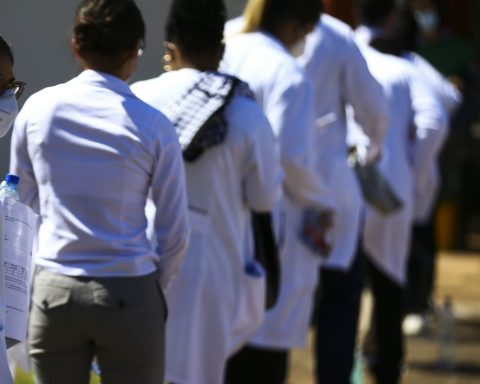The covid-19 pandemic has pushed the world economy into an unexpected recession that deeply affects the economies of Latin America and the Caribbean. The combination of growing dissatisfaction with democracy in recent years, continued exposure of government corruption and rising social unrest have exacerbated existing problems in the region.
(Labor market in Colombia: Is it recovering?).
The democratic future of Latin America depends on the ability of governments to respond quickly to these growing challenges or it could be faced, once again a new period of sustained democratic backsliding and economic decline. In this sense, the support of the private sector and public policy experts in the design of economic recovery strategies and long-term structural reforms are essential for the generation of new ideas in the midst of the current situation.
“CIPE has worked in Latin America for more than 30 years promoting initiatives for the private sector, so that they are active actors that contribute to the development of their regions, the generation of employment, and the strengthening of the economies and institutions of their countries. With the recent establishment of the Office in Colombia, CIPE will continue to promote opportunities that point in the direction of strengthening democracy in the Andean Region through private enterprise.”says Ángela María Vélez, Director of the CIPE Colombia Program.
The International Center for Private Enterprise (CIPE), created the initiative The Future of Work in Latin America in which 4 organizations are developing solutions and recommendations to help remedy the economic recession, provide significant information about covid-19 and promote the economic growth through the strengthening of the public and private sectors.
(Why is it more difficult for women to get out of unemployment?).
For this reason, CIPE will hold in the city of Bogotá the event “The future of work in Latin America” to define the scope of a regional public policy document with recommendations and an implementation path for the future of work in Latin America.
It will have the participation of 4 international organizations and the following discussion topics:
Luis Fernández Mejía, Fedesarrollo – Colombia. The labor market before and after COVID-19 and how digital platforms are affecting tax payments.
Ramiro Albrieu, CIPPEC – Argentina. The effect of big data, artificial intelligence and other productivity-enhancing technologies on the labor market and workers’ earnings.
Laurence Pantin, Mexico Evalúa – Mexico. Good practices for the implementation of digital mechanisms in the provision of services in the justice sector.
Hugo Maul, CIEN – Guatemala. The role of technology in the construction of the formal economy.
The sessions will also have the presence of Marco Falcone from Fundación Libertad from Argentina and Santiago Laserna from CERES from Bolivia, who will act as observers at the tables.
There will be a virtual broadcast of the day on March 24 from 10:00 a.m. to 12:30 p.m. through the CIPE social networks (Twitter: @Cipe_Lac) and all the information resulting from the event will be shared on the same channels.

















